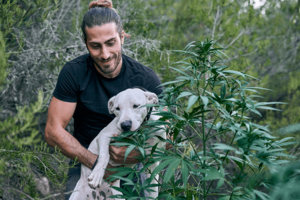
The Surprising Benefits of Cannabis for Dogs – What Every Pet Owner Needs to Know
As the legalization of cannabis spreads across the world, it is becoming increasingly common to hear of its therapeutic benefits for humans. But did you

In its most basic form, a tincture is an infusion of cannabis in a liquid suited for sublingual ingestion rather than smoking or vaping. After many days of steeping in a base liquid like food-grade alcohol, glycerin, or indeed oil, the cannabis plant is removed and voila! The base liquid now contains cannabinoids, terpenes, and other chemicals that are ready for dosing and consumption.
Technically speaking, an “infusion” is a product prepared with oils or glycerin, whereas a “tincture” is one created with alcohol, but we’re using it here as a general phrase.
Tinctures for adult use often come in glass bottles that hold 1 fl oz (30 mL) and have droppers to deliver low, regular doses. They can contain more than the 100 mg THC limit for edibles in many countries since they are not regarded as food products.
Tinctures may not appear as exciting or novel as gummies or a dab, yet they offer a variety of health advantages in addition to a cozy, heady experience.
While tinctures and edibles both need to be consumed to be effective, they reach the bloodstream through several different physiological systems and produce different effects.
The liver’s enzymes help counteract the effects of consumed THC by processing edibles, which must be digested and processed there. The high is more immediate with tinctures because they are ingested under the tongue rather than passing through the liver, so it won’t be as intense.
What distinguishes a tincture from CBD oil?
Although tinctures and the CBD oils found in health shops and online are very similar, there are also substantial differences between the two.
To be specific, a CBD oil that isn’t offered in a legally authorized dispensary for either medical or adult-use marijuana is often created by separating and extracting CBD from hemp using a solvent, such as butane or CO2, and then fusing the extract to a carrier oil.
Tinctures are extracts from the whole plant and may include trace quantities of THC even when they are derived from hemp plants that have been grown in compliance.
Additionally, tinctures are not suitable for topical or skin-conditioning treatments like CBD oil may be because they are frequently alcohol-based. However, both can be consumed orally to reap the therapeutic effects of CBD.
Tinctures have been available at apothecaries and dispensaries for decades since they are thought to be one of the healthiest ways to ingest cannabis, even though they may not look as trendy as other consumption methods.
Only the cannabis plant as well as the foundation to which it is linked are required, unlike some brands that flavor or improve tinctures. This allows for the avoidance of components like sugar, gluten, gelatin, food coloring, and anything else that can exacerbate allergies or intolerances.
Tinctures first have the appearance of either a skincare product or dietary supplement. When sealed, they don’t smell like buds and don’t emit smoke or vapor like they do when inhaled.
One bottle of tinctures will last you much longer than that of a tin of gummies or a brownie because they are not restricted by the 100mg edible restriction in many markets. You can precisely manage your dosage as well.
Since tinctures absorb via the tongue tissue, their effects start to take effect faster when taken sublingually than they would if you were to consume an edible (though it will take a little longer than smoking). Additionally, this means that tinctures have a longer potency than smoking a joint, but they may break down more quickly than baked foods or other fatty edibles.
Since the whole cannabis plant is soaked to create tinctures, customers benefit from all of the plant’s constituents, not just THC and/or CBD.
Legal cannabis businesses are required to provide precise dosage information for edible products. The package of a tincture you purchase from your neighborhood dispensary will include dosing instructions. This is also offered by the majority of health and CBD retailers, however, THC-free tinctures aren’t necessarily subject to the same level of testing.
Your appropriate dosage will depend on both your tolerance level and the tincture’s intended use. If the tincture was created to aid in sleep, you might want to take a single, strong dose to guarantee sedation. A more elevating experience might be had by taking many microdoses during the day if you plan to utilize the tincture for overall daytime wellbeing.
Like anything weed-related, the general rule is to start low and go slowly. If you have a poor tolerance or don’t usually ingest heavy doses of cannabis, we recommend starting with just a 1/4 dropper or less. One full dropper equals one mL in a 1 fl oz container. If you feel more confident, go for half a dropper.
Use the dropper to place the tincture underneath the tongue, then wait 30 seconds before actually swallowing for optimal effectiveness.
The oral mucosa, which is basically a mucous membrane that runs along the inside of the cheeks, lips, and underneath the tongue, is an absorbent tissue found in the mouth that aids in disease prevention and maintains oral health. Additionally, it absorbs tinctures and delivers cannabis directly into the circulation, skipping the stomach and liver.
If tinctures are allowed to sit beneath the tongue for 30 to 45 seconds, they usually start working within 15 to 30 minutes. Since your body won’t absorb a tincture the same way it would edibles or food items, swallowing it whole can reduce its effectiveness. Tinctures that have been combined with food will take longer to come into effect, but they may produce a stronger high.
Tinctures can be used in cooking, but it mostly depends on the composition and how you intend to use them. Because most tinctures contain decarboxylated THC, CBD, and/or other cannabinoids, heating the tincture in an oven, stove, or pot of boiling water may cause the medicinal properties to disappear, making the finished product inedible.
But by including a tincture in a sauce or dressing, you can easily add it to the finished dish. They are also useful toppings for cannabis tea preparations.

As the legalization of cannabis spreads across the world, it is becoming increasingly common to hear of its therapeutic benefits for humans. But did you
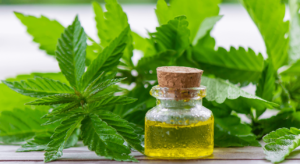
Cannabis oil is a natural alternative to traditional medicines that has been gaining popularity in recent years. It is made by extracting the cannabinoids and

Discover The Best Cannabis Gummies Available at Mr. Nice Guys Wellness Center If you’re a fan of cannabis gummies, then you’ll definitely want to check
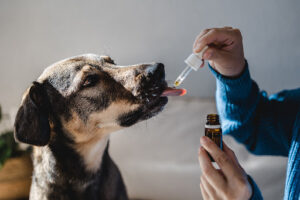
As a pet owner, you may be interested in CBD products for your furry friend. Here’s what you need to know about using cannabis for
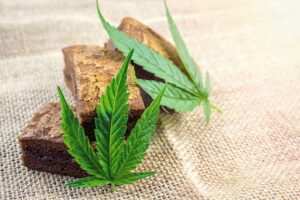
What Exactly Is Edible Cannabis? Products that contain cannabinoids which you can eat or drink are known as edible cannabis products (or edibles for short).
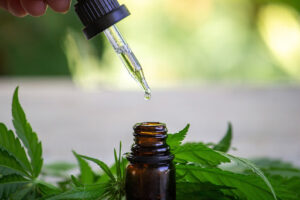
What is a cannabis tincture? In its most basic form, a tincture is an infusion of cannabis in a liquid suited for sublingual ingestion rather
Mr. Nice Guys Wellness Center Superstore | All rights reserved 2023 | Privacy Policy | Powered By Starfish Ad Age LLC